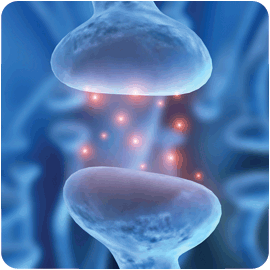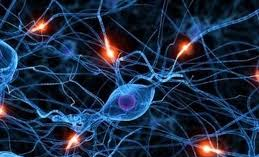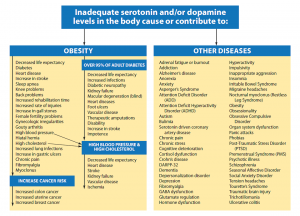
by Dr. Oler, ND | Aug 11, 2015 | Amino Acid Therapy, Natural Remedies, Naturopathic Health
Neurotransmitters help the body communicate with itself and direct most of the bodies functions. They are like little chemical messengers that relay information to and from the brain millions of times daily. Unfortunately, imbalances in neurotransmitters can create a whole host of problems, including depression, anxiety, obsessive thoughts, difficulty sleeping, compulsive and/or addictive behaviors, cravings for sweets, increased or insatiable hunger, increased pain (like in fibromyalgia), chronic fatigue, the urge to pull out hair (as in trichotillomania), migraines, poor memory, inability to focus or concentrate, weight gain/inability to lose weight, restless legs, Parkinson’s disease and many gastrointestinal imbalances (including Crohn’s disease and ulcerative colitis). (more…)

by Dr. Oler, ND | Jun 30, 2015 | Natural Remedies
Carbidopa is a class of drug called decarboxylase inhibitor that inhibits the conversion of L-dopa to dopamine outside of the brain. It also irreversibly binds to and permanently deactivates the active form of vitamin B6 in the body. Vitamin B6 is required for the function of over 300 enzymes and proteins in the body in almost every major system. (more…)

by Dr. Oler, ND | Jan 29, 2015 | Amino Acid Therapy, Naturopathic Health
In a previous post, I summarized the major neurotransmitters along with their functions and diseases associated with dysfunction or imbalance. It is always a risky exercise to put forth such information as it is very easy to draw erroneous conclusions from looking at such data.
For instance, someone looking at this information that has depression may conclude that they have an imbalance with serotonin and simply need to take a serotonin precursor (such as 5-HTP or L-tryptophan) or a substance that modifies serotonin release or absorption (such as St. John’s Wort or an SSRI medication) to alleviate their depression. In practice, this approach seldom works. (more…)

by Dr. Oler, ND | Nov 25, 2014 | Naturopathic Health
When most people think of neurotransmitter imbalances, they think of disorders such as depression, anxiety, insomnia and possibly ADD/ADHD and Parkinson’s disease. Usually, that’s because the drugs used to treat these disorders attempt to manipulate various neurotransmitters – including serotonin, dopamine, norepinephrine and GABA – in order to help alleviate symptoms.
However, neurotransmitter imbalances affect almost all of the body’s systems and functions. Therefore, neurotransmitter imbalances can cause a whole host of symptoms and have been implicated in an extremely large and diverse number of disorders, as shown in the table below (click on the table to enlarge):

Table taken with permission from Marty Hinz, MD.
If a person experiences symptoms of any of the disorders listed above, especially if that person is experiencing multiple symptoms or disorders listed in this table, it is highly probable that neurotransmitter imbalance is a root cause that must be properly addressed in order for that person to experience long-term relief of symptoms.

by Dr. Oler, ND | Oct 9, 2014 | Amino Acid Therapy
Parkinson’s disease is classified as a progressive neurodegenerative disease that affects more than ten million people worldwide, with approximately 60,000 new cases diagnosed each year. The most effective treatment for Parkinson’s disease is L-dopa; however, many people that take L-dopa experience extreme nausea which prevents them from taking enough L-dopa to achieve a relief of symptoms. In May of 1975, the FDA approved the drug carbidopa to manage L-dopa induced nausea, and the drug Sinemet® (carbidopa/L-dopa) was approved. (more…)






